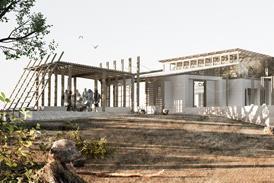- Home
- Intelligence for Architects
- Subscribe
- Jobs
- Events

2025 events calendar Explore now 
Keep up to date
Find out more
- Programmes
- CPD
- More from navigation items
We must seize this opportunity to reform the profession

ARB’s proposed education reforms offer the perfect opportunity to reimagine the profession, writes Charles Bettes
The traditional three-part route to qualifying as an architect in the UK is outdated and exclusive. It doesn’t cater for those who can’t afford it or who learn in different ways; it hasn’t done enough to encourage individuals from diverse backgrounds and nor does it do enough to retain them.
During my education I felt that much of the course was focused on creating the ‘master architect’, which doesn’t relate to the real job done by most architects and is an outdated vision of what the architect should and could be. It also wasn’t what I wanted to be, which meant that I finished my Part 1 unsure about a career in the industry.
…
This content is available to registered users | Already registered?Login here
You are not currently logged in.
To continue reading this story, sign up for free guest access
Existing Subscriber? LOGIN
REGISTER for free access on selected stories and sign up for email alerts. You get:
- Up to the minute architecture news from around the UK
- Breaking, daily and weekly e-newsletters
Subscribe to Building Design and you will benefit from:

- Unlimited news
- Reviews of the latest buildings from all corners of the world
- Technical studies
- Full access to all our online archives
- PLUS you will receive a digital copy of WA100 worth over £45
Subscribe now for unlimited access.






